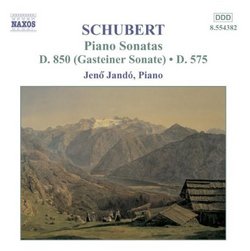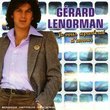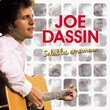| All Artists: Schubert, Jando Title: Piano Sonatas D 850 & 575 Members Wishing: 0 Total Copies: 0 Label: Naxos Release Date: 8/20/2002 Genre: Classical Styles: Chamber Music, Historical Periods, Classical (c.1770-1830) Number of Discs: 1 SwapaCD Credits: 1 UPCs: 636943438220, 636943438220 |
Search - Schubert, Jando :: Piano Sonatas D 850 & 575
CD DetailsSimilar CDs |
CD ReviewsConsummate musicianship with two contrasting Sonatas Hexameron | 02/18/2007 (4 out of 5 stars) "Jeno Jando has established himself as a prolific and unpredictable pianist, recording Bach, Liszt, and the entire sonatas of Beethoven and Schubert. I'm not acquainted with his Beethoven renditions, but I can genuinely vouch for his Schubert recordings. Jando plays the D. 959 like the best of them. He continues with finesse and sensitivity on this recording, breathing life into the Gasteiner and the early D. 575 sonatas, sonatas that are indeed a strange coupling.
The D. 850 'Gasteiner' sonata (No. 17), written in 1825, does not rank with the pensively sublime last three sonatas. Indeed, the work itself is steeped in the style of a stormy Beethoven. Nevertheless, it is surely a "great" piano sonata from Schubert, one we should be glad to have. Passion, melody, harmonic invention, and charming filigree are all present in each of these extensive sonata movements. The first, Allegro vivace, movement is the majestic crown of the work, a mighty 9-minute journey of music with moments of tempestuousness and moving beauty. Jando plays with conviction and good taste. The Con moto movement is a lyrical respite with a slightly energetic kick that occasionally crashes in. Again, Jando plays with a fusion of passion and intelligence; the melodic ideas are clear and the content of those ideas brim with life through Jando's fingers. I particularly enjoy Jando's delivery of the Scherzo movement, a charming adventure imprinted with those indefatigable and original melodies of Schubert. Jando demonstrates his ability to balance well-timed brio and grace as heard in the scherzo section. The last movement is not one of Schubert's best, but the naive little Mozartian theme is still endearing. Jando gives his best shot and inculcates the animated and glamorous music with a tinge of warmth. Schubert's D. 575 Sonata in B major (No. 9), composed in 1817, is a rather laid-back work. Schubert's shining melodies and poignancy are no where to be found. If I were to give it the worst criticism I would say that it's not that memorable. However, there are some moments, particularly in the Andante, that show some heavy emotional ideas. Ultimately, though, the entire work is remembered with an inherent mood of invigoration and joy. Jando plays this work as well as Brendel, I think. In the first movement, he plays with an effective muscular but refined touch. The Andante, though, is played with far more dynamics and nuance: Jando strikes hard with the passionate sections and then lets his fingers float through the reflective moments. Both the Scherzo and Allegro giusto movements seem somewhat mediocre, but since they're from Schubert's pen, mediocrity is actually not that bad. Jando does the best he can with them, highlighting quite well on the rhythmic glee of the Allegro giusto. Bottom line: You'll find here a curious pair of Schubert sonatas: one is a marvelous testament and the other an innocent diversion with only a few spices to keep it interesting. The quality of them put together was not enough for me to endorse a 5 star-rating, but these Schubert sonatas are still something I never get tired of. Jando's versatile style and nearly-flawless execution is a plus: he is a fine contender against Brendel or Uchida." |




